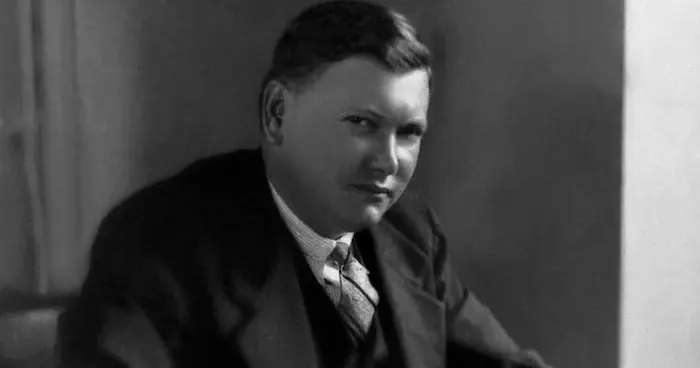Ralph Peer was a visionary music executive and talent scout. His contributions to commercial country music were immense. Through his keen ear and innovative methods, he transformed a regional genre into a nationwide sensation. This article explores his legacy, highlighting his pivotal role in shaping the landscape of country music.
I. Early Life and Career
Background and Beginnings
Ralph Sylvester Peer was born on May 22, 1892, in Independence, Missouri. His early exposure to music came through his father, who owned a music store. Peer learned to play several instruments and developed a deep appreciation for various musical genres.
Entry into the Music Industry
Peer’s career in the music industry began in Kansas City, where he worked as a phonograph salesman. His first significant job was with Columbia Records in New York City. Here, he quickly ascended the ranks, displaying a knack for identifying popular music trends.
II. The Birth of Field Recording
Innovations in Recording Techniques
Ralph Peer revolutionized the music recording process. He saw potential in recording artists outside the studio environment. In 1923, while working for Okeh Records, he conducted field recordings in Atlanta, Georgia. This approach captured the authentic sounds of regional music.
Discovering Rural Talent
Peer’s field recording expeditions uncovered hidden musical talents. He recorded various artists, from blues to folk musicians. His most notable discovery was Fiddlin’ John Carson, whose recording of “The Little Old Log Cabin in the Lane” became a commercial success. This event marked the beginning of commercial country music.
III. The Bristol Sessions
A Landmark Event
In July 1927, Ralph Peer organized recording sessions in Bristol, Tennessee. Known as the Bristol Sessions, these recordings are often called the “Big Bang of Country Music.” Peer advertised for local musicians to come and record their songs. The response was overwhelming, and the sessions produced some of the most influential recordings in country music history.
Key Discoveries
During the Bristol Sessions, Peer discovered two acts that would become country music legends: The Carter Family and Jimmie Rodgers. The Carter Family’s harmonies and Rodgers’ unique style of singing and yodeling captivated audiences. These recordings brought country music to the forefront of American popular culture.
IV. Promoting and Publishing Country Music
Establishing Southern Music Publishing Company
In 1928, Ralph Peer founded the Southern Music Publishing Company. This move was strategic, allowing him to control the publishing rights to the music he recorded. Peer’s company became a significant player in the music publishing industry, promoting country music nationwide.
Marketing and Distribution Strategies
Peer was a master marketer. He understood the importance of radio in promoting music. He secured airplay for his artists on major radio stations, reaching a broad audience. Additionally, he used innovative distribution methods to ensure that records were available in rural areas where country music was most popular.
V. Influence on Artists and the Music Industry
Mentorship and Development
Ralph Peer was more than just a talent scout; he was a mentor to many artists. He provided guidance on song selection, performance techniques, and career management. His support helped artists like The Carter Family and Jimmie Rodgers achieve lasting success.
Standardizing Royalties and Contracts
Peer played a crucial role in standardizing royalties and contracts in the music industry. He ensured that artists received fair compensation for their work. His efforts laid the foundation for modern music publishing practices, benefiting countless musicians.
VI. Personal Insights and Anecdotes
Peer’s Dedication to Authenticity
Ralph Peer was known for his dedication to capturing authentic sounds. He often traveled to remote areas, setting up makeshift recording studios in hotel rooms, barns, and even front porches. His commitment to authenticity allowed him to preserve the unique qualities of regional music.
Peer’s Impact on Artists’ Lives
Many artists discovered by Peer spoke highly of his impact on their lives. The Carter Family, for instance, credited Peer with giving them their start and guiding them through the early stages of their career. Jimmie Rodgers also praised Peer’s support and vision.
Peer’s Legacy in Modern Country Music
Today, Ralph Peer’s influence can be seen in the success of modern country artists. The recording and marketing techniques he pioneered are still in use. His emphasis on authenticity and fair compensation for artists remains a guiding principle in the industry.
VII. Legacy and Impact
Long-term Influence on Country Music
Ralph Peer’s influence on country music is undeniable. He helped shape the genre’s sound and expand its audience. His innovative recording techniques and marketing strategies set the standard for the industry. The artists he discovered and nurtured became the pillars of country music.
Recognition and Honors
Peer’s contributions have been widely recognized. He was inducted into the Country Music Hall of Fame in 1984. His work continues to inspire music executives and artists alike, cementing his place as a pioneer of commercial country music.
See Also: Which Country Has the Best Phonk Music?
VIII. Conclusion
Ralph Peer’s contributions to commercial country music were transformative. His vision, innovation, and dedication brought rural American music to the national stage. By discovering and promoting iconic artists, he laid the groundwork for the genre’s enduring popularity. Peer’s legacy lives on, reminding us of the profound impact one person can have on an entire industry.

